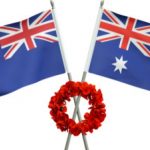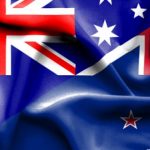New Zealand Denounces Dutton’s Kiwi Deportation Program

New Zealand justice minister Andrew Little has condemned Australia’s deportation program, as “nebulous” and “airy fairy.” This is the policy that has seen an increasing number of Kiwis being sent to New Zealand for petty crimes, often after living the majority of their lives in this country.
Appearing on the ABC’s Foreign Correspondent on 17 July, Mr Little said that it seems to him that “there’s a venal political strain” to the deportation policy, which “is certainly not consistent with any humanitarian ideals” that he thought “both countries once shared.”
In response, Australian home affairs minister Peter Dutton stated that the justice minister should “reflect a little more on the relationship between Australia and New Zealand.” And he implied that Australia was blocking refugee boats from arriving in NZ, which somehow justified deporting Kiwis.
Since amendments to the Migration Act took effect in December 2014, around 1,300 Kiwis have been kicked out of Australia. Most of the focus has been on the change that’s meant noncitizens with accumulated prison sentences of 12 months or more are now automatically deported.
But, some recent cases have revealed that Australian authorities are now deporting New Zealanders who haven’t even been convicted of a crime. And Kiwis living in Australia are beginning to assert that it’s no accident the changes are targeting them.
A biased policy
“At its heart this a racist policy,” Joanne Cox media liaison for OZ Kiwi told Sydney Criminal Lawyers®. “They wanted to clean the streets of the petty Kiwi criminals and we believe this is a calculated move.”
Ms Cox made clear that criminal justice system bias against people of colour means they’re being disproportionately affected by the policy, and the changes also have a greater impact upon disadvantaged lower socioeconomic families, who “have become the punching bag of the government.”
And in regard to minister Dutton’s comments about stopping the boats to New Zealand, Ms Cox said they were nonsense. “What he doesn’t understand is that NZ would accept these refugees and treat them humanely,” she pointed out. “A foreign concept to him.”
The “character test” amendments
The Migration Amendment (Character and General Visa Cancellation) Bill 2014 amended section 501 of the Migration Act 1958, so a noncitizen is automatically deported for any number of sentences amounting to 12 months or more, rather than the previous 24 months.
This has seen numerous “petty criminals deported given the retrospective, cumulative 12 months of sentencing,” Ms Cox explained. “Deportation should be reserved for serious, violent and recidivist offenders: those who pose a danger to society, not shoplifters, minor drug possession and the like.”
The same section of the Act was also amended so that a noncitizen can now be deported without a conviction if the minister reasonably suspects that the person has been or is a member of a group or organisation, or has been or is associated with a group, organisation or person involved in crime.
Section 116 of the Act was amended as well, so as to clarify that the visa of a noncitizen can be cancelled not only if the minister is satisfied an individual poses an actual risk to “good order,” but also if an individual could possibly pose a risk.
“Dutton is vindictive and cruel,” Ms Cox remarked. “He is obsessed with removing anyone he can under section 501 or section 116.”
A disproportionate impact
Department of Home Affairs figures outline that since the changes to the Migration Act were made, the number of visa cancellations on character grounds have increased by over 1,400 percent. Last year, 1,212 people were deported, with 51 percent, or 620 individuals, being Kiwis.
On 31 May this year, 173 New Zealander detainees made up the largest group of people being held in Australia’s onshore immigration detention facilities.
Just after the changes, in February 2015, New Zealanders didn’t rate as a distinct group in immigration detention. However, by September that year, they were the second biggest cohort of detainees. And by June the following year, Kiwis in detention made up the largest group.
Controversial cases
Ko Haapu was assigned the personal security detail of then NZ prime minister John Key when he visited Afghanistan in 2010. But, in February 2016, Mr Haapu was turfed out of Australia for his association with a motorcycle gang.
The former NZ lance corporal became a member of the Rebel bikie gang in WA, which is not against the law in that state. And in November 2015, when he went to visit a member of the gang in Casuarina prison, he was detained by officers.
Mr Haapu was then held in prison without charge and told he’d stay there until the legal process ran its course, unless he signed papers that would lead to him being deported in a faster manner. And after five months inside, he signed the papers.
The Turnbull government also recently detained a 17-year-old New Zealand boy from Sydney in a Melbourne immigration centre. He was to be deported in relation to nonviolent offending. But, after four months in detention, he was released after successfully appealing his case.
A community under threat
The Trans-Tasman Travel Arrangement has allowed for the free movement of Australians and New Zealanders across the ditch since 1973. And now, the estimated 600,000 Kiwis who live in this country are increasingly feeling the impact that this recent deportation policy is having on their community.
“It is definitely having an effect on Kiwis,” Ms Cox continued. She described a situation where families are being ripped apart, kids are losing their parents, and fathers missing the births of their children.
Trans-Tasman ties jeopardised
And the war of words between the Australian home affairs minister and the NZ justice minister has lead commentators to declare that this situation is now threatening the longstanding close relationship between the two nations.
“This is certainly a detrimental situation,” Ms Cox stressed. She explained that while New Zealand has been trying “quiet diplomacy” to get the Australian government to do the right thing, “Dutton has got harder on Kiwis with section 116 sweeping up many who don’t deserve deportation.”
“New Zealand won’t win this battle,” she warned, “as they are dealing with a psychopath.”







